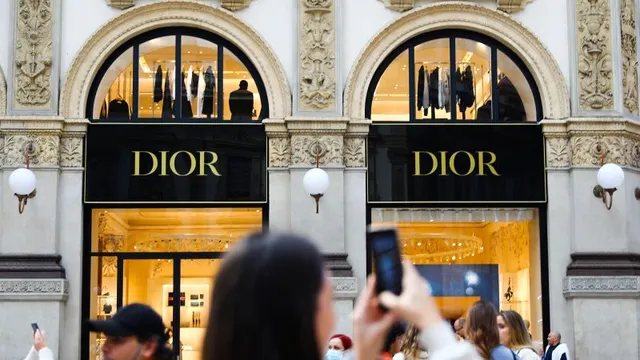
Dior commits $2.3 million to aid labor exploitation victims after investigation
2025-05-21 00:00- Dior has settled an investigation by the Italian competition authority over claims of misleading consumer statements about supplier working conditions.
- The luxury brand will pay €2 million to support labor exploitation victims over the next five years.
- The outcome of the investigation has drawn criticism for being lenient and highlights ongoing issues in the fashion industry's supply chains.
Express your sentiment!
Insights
In Italy, Dior has reached an agreement following an investigation by the Italian competition authority that examined the luxury brand's claims regarding working conditions at its suppliers. The investigation was prompted by revelations from prosecutors in Milan last year, who uncovered workshops where underpaid workers, many of whom were immigrants living in Italy illegally, produced leather goods sold to renowned fashion brands like Dior and Armani at significantly reduced prices. These findings raised concerns about misleading consumer perceptions concerning ethical production practices and corporate social responsibility within the luxury market. As a result of the investigation, the Italian antitrust authority closed the case without establishing any legal infringement, yet deemed the remedies proposed by Dior to be appropriate. These remedies include a financial commitment of €2 million (approximately $2.3 million) over five years to support initiatives aimed at assisting the victims of labor exploitation. Furthermore, Dior has also pledged to modify its ethical and social responsibility communications and to implement stricter procedures for selecting and monitoring its suppliers, thereby aiming for greater transparency throughout its operations. Consumer advocacy group Codacons expressed disappointment with the leniency of the investigation's outcome, referring to the financial commitments as insufficient given the serious nature of the findings. They criticized the lack of fines levied against the luxury brands involved, illustrating a broader concern regarding accountability in the fashion industry. Last year, judicial oversight was placed over the production units of both Dior and Armani to ensure compliance with ethical standards and rectify any exploitation issues. This special administration period was concluded earlier this year. In a parallel instance, an Italian court recently imposed judicial administration on a unit of the Valentino fashion brand for a year due to findings related to mistreatment of workers in its supply chain. These ongoing issues highlight the critical need for luxury brands to address labor exploitation within their production networks and reinforce their commitments to ethical practices. The revelations not only demonstrate the dire working conditions faced by many laborers but also spark a significant conversation about transparency and responsibility in the luxury fashion industry.
Contexts
In recent years, the luxury fashion industry has come under increasing scrutiny regarding ethical and social responsibilities. Dior, a prominent player in this sector, has recognized the importance of adapting to these evolving expectations and has set ambitious goals for 2025. This report outlines the key changes that Dior is implementing to enhance its ethical and social responsibility policies, ensuring that the brand remains a leader in sustainable luxury fashion while fostering positive societal impacts. Dior's commitment to sustainability is primarily focused on reducing its environmental footprint and promoting ethical sourcing in its supply chain. The company has invested significantly in innovative materials and production methods that not only minimize waste but also prioritize sustainability from raw materials to finished products. By 2025, Dior aims to achieve 100% of its collections being crafted from sustainable materials, as well as achieving carbon neutrality in its operations. This shift towards environmentally-conscious practices not only aligns with consumer demand for greener products but also establishes Dior as a forward-thinking brand that values the planet's wellbeing. In addition to environmental initiatives, Dior recognizes the importance of social responsibility within its corporate ethos. The brand is working to foster diversity and inclusion both within its workforce and in its marketing strategies. As part of its 2025 objectives, Dior has committed to increasing the representation of underrepresented groups in its leadership roles and campaigns, aiming for a more inclusive narrative that reflects the diverse world we live in. Furthermore, Dior plans to launch community outreach programs that focus on empowering local artisans and supporting craftsmanship, ensuring that communities involved in the supply chain benefit from the prosperity generated by the luxury industry. In conclusion, Dior's changes in ethical and social responsibility by 2025 reflect a comprehensive approach that addresses both environmental and social dimensions of corporate responsibility. By prioritizing sustainability in its sourcing and production processes while promoting diversity and community engagement, Dior aims to set a standard for the luxury fashion industry. These strategic initiatives not only enhance the brand's reputation but also respond effectively to the demands of conscious consumers who are increasingly seeking brands that align with their values. As the company moves forward, it is poised to not only lead in style and quality but also in the realm of ethical fashion.